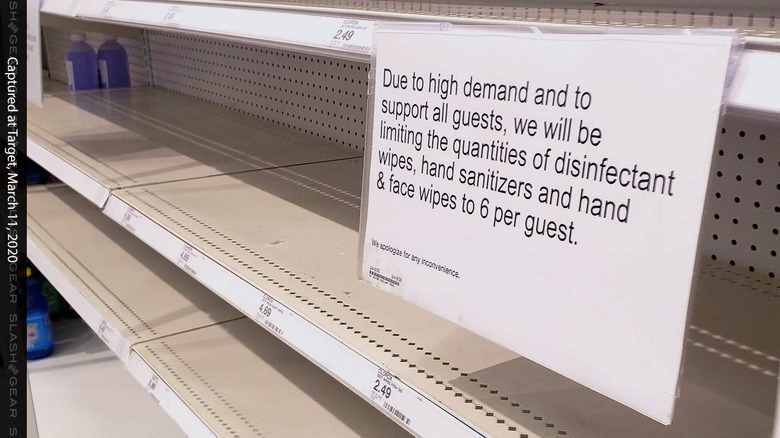Food And Food Packaging Are Not A COVID-19 Spread Risk Says FDA
The coronavirus is highly unlikely to be transmitted via food or food packaging, the US FDA has reconfirmed, as research into the ongoing COVID-19 pandemic reveals more about the potentially deadly disease. Concerns about viral transmission of the infection, and the ways by which it could be transmitted between people, were feverish in the early weeks and months of the pandemic, with widespread fears that COVID-19 could live on food packaging.
That would have an obvious impact on grocery shopping, but also on food deliveries. Many people added disinfecting food packaging to their unpacking routine after visits to the grocery store, wiping down boxes, cartons, and other containers in case the virus might be present.
According to the U.S. Food and Drug Administration, though, along with the the U.S. Department of Agriculture and the U.S. Centers for Disease Control and Prevention, the reality is different. In a statement this week they insisted "that there is no credible evidence of food or food packaging associated with or as a likely source of viral transmission" of COVID-19.
That judgement is based on more than 100 million cases of COVID-19 around the world, the FDA says, with none leading to actual epidemiological evidence that the transmission was via either food or food packaging. Nor has any indication of that being a vector been observed through either national or international food monitoring.

Part of the reason why fears around coronavirus living on surfaces has been so widespread is the illness' resemblance to other diseases that can more commonly be transmitted via infected items. "It's particularly important to note that COVID-19 is a respiratory illness that is spread from person to person," the FDA says, "unlike foodborne or gastrointestinal viruses, such as norovirus and hepatitis A that often make people ill through contaminated food."
The reality is, the agency adds, that the number of particles of the COVID-19 virus that you could reasonably pick up on your fingers from touching a surface or a food is very small. At the same time, though, you'd need a large number to actually be infected via oral inhalation.
Hygiene standards are, of course, still vital during the pandemic, even as vaccination programs are underway. That includes social distancing where possible, wearing masks – and preferably double-masking, depending on the type of face covering you're wearing and whether you have access to N95 or KN95 masks – and washing your hands regularly. If, though, you've been meticulously wiping down every pizza box and bag of salad with disinfectant wipes before they come into the house, it sounds like you may be able to stop.
